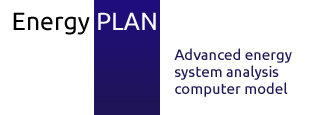This study was conducted by Master’s students in the Sustainable Energy Planning and Management program in the Department of Planning and Management at Aalborg University. The research focused on Switzerland’s energy system in light of the debate over new investments in nuclear reactors. A technical energy system analysis was performed using EnergyPLAN to determine if alternative investments in renewable energy could satisfy energy demand over a time horizon of 20 years.

This report is aimed at answering the question: How can the Swiss energy sector be developed in a sustainable way and what is the character of needed institutional change to foster optimal decisions? To arrive at the answers, a computerized Swiss energy system model is created and an alternative future pathway is proposed in alignment of available domestic renewable energy resources, available technologies and sustainability considerations. The costs and benefits of the proposed system design are explored through cost-benefit analyses. Furthermore, the institutional setting and stakeholder dynamics of the system are analyzed through a literature survey and expert interviews.
The research leads to the conclusion that it is feasible to increase the sustainability of the current Swiss energy system and meet demand through investments in renewable energy sources. The proposed energy portfolio is sufficient to replace the production capacities of the nuclear reactors that will be decommissioned in the coming decade as well as cover rising demand. Energy efficiency measures add additional improvements. However, the barriers to the change are predominantly institutional and to bring about the necessary radical technological change the institutional development needs to undergo a transformation to punctuated evolution.



